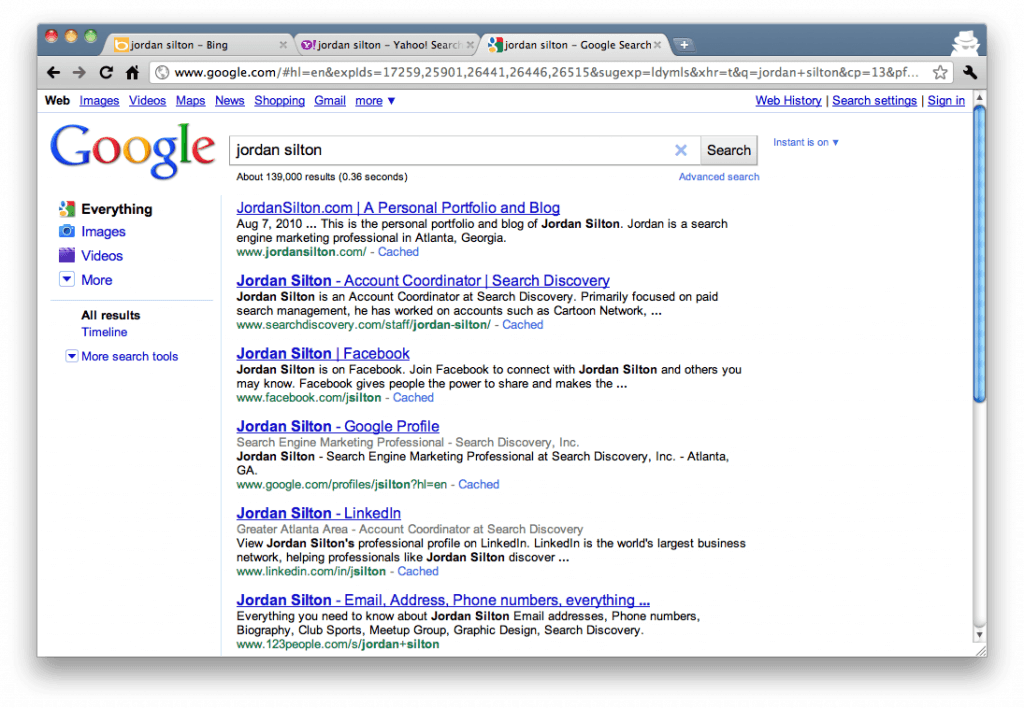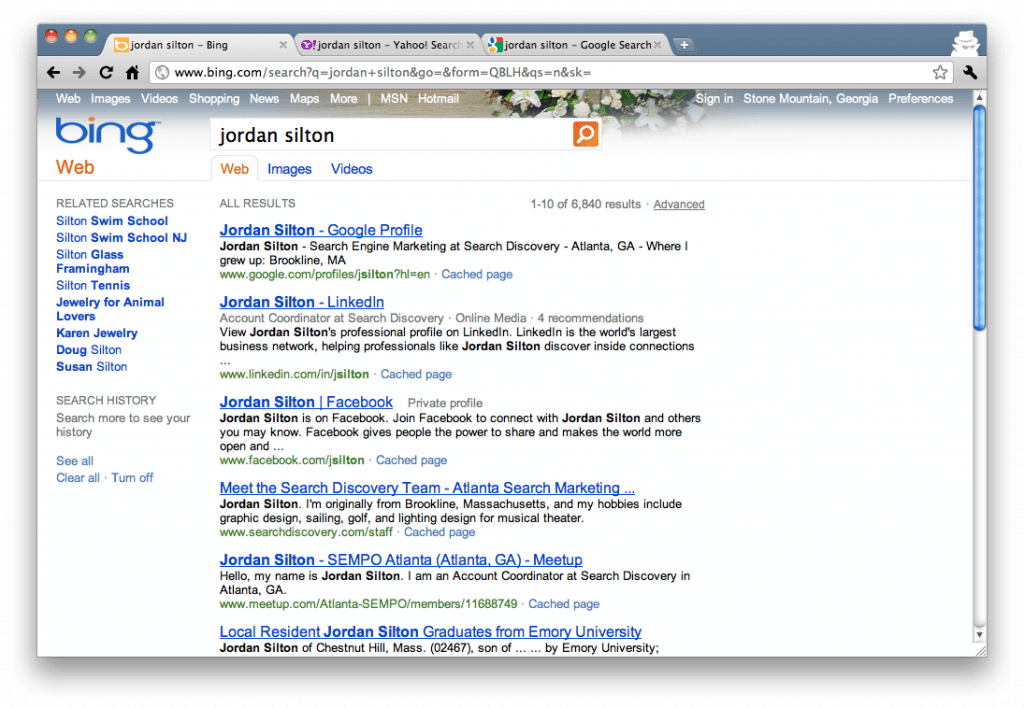How Long Does it Take To Rank Number 1?
11 Sep 2010, 2 min read.
How long does it take to rank #1? Well, this website is quite new … bought the domain on August 6th and started working on it immediately. The first thing I did was block search engines. This may be surprising, but it’s actually a good idea until you get the website presentable for the general public. I robots.txt blocked the site and implemented a no-index meta tag.
So when did I really launch the site? On August 26th, I removed the no-index meta and allowed all search engines access again through robots.txt. I posted my first blog entry, and the website was off and running.

The first thing to show up in search results was my blog post. FeedBurner is quite amazing; with Google Caffeine, blog posts get listed within minutes if not seconds. After that first post, it took quite a for Google to display the rest of my pages in search results. Today is September 11th, and I can say that I now see all my pages indexed properly with accurate titles and meta descriptions. Plus I rank number one for my own name … on Google that is.

Sixteen days after my site launched (which I think is a pretty relevant for my name), Yahoo and Bing still haven’t listed JordanSilton.com in the top results. Just because Google indexes all it’s content really fast doesn’t mean that the content is more relevant for a specific query. Bing’s Stefan Weitz recently spoke about how Bing is trying to do search smarter.
It may take a little longer, but validating the quality of search results is surely important. Both Google and Bing do a remarkable job of sifting through millions of web pages and choosing those most relevant for any individual query. It’s quite outstanding that my website, which gets 5–10 visits per day, can we crawled and indexed so quickly. It used to take search engines several months to update the results for websites with thousands of visits per day. Now, some results appear instantaneously.
To get in touch, connect on LinkedIn, send a message on Twitter, or write to jordan@jordansilton.com.
